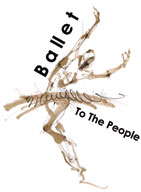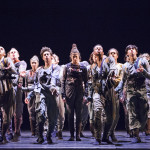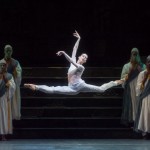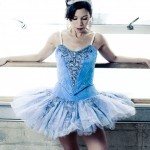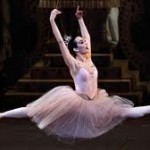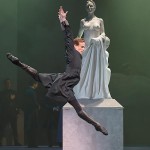Leigh Donlan reviewed the Saturday 28th Sept, 2024 performance at New York’s City Center
Fall for Dance concluded its 2024 festival at New York City Center this weekend with Program 5, a three-piece bill (plus a bonus) that set out to explore relationships but lost its way. Cassandra Trenary gave a fearless, show-stopping performance in Molissa Fenley’s demanding State of Darkness. She replaced the previously-announced Sara Mearns.
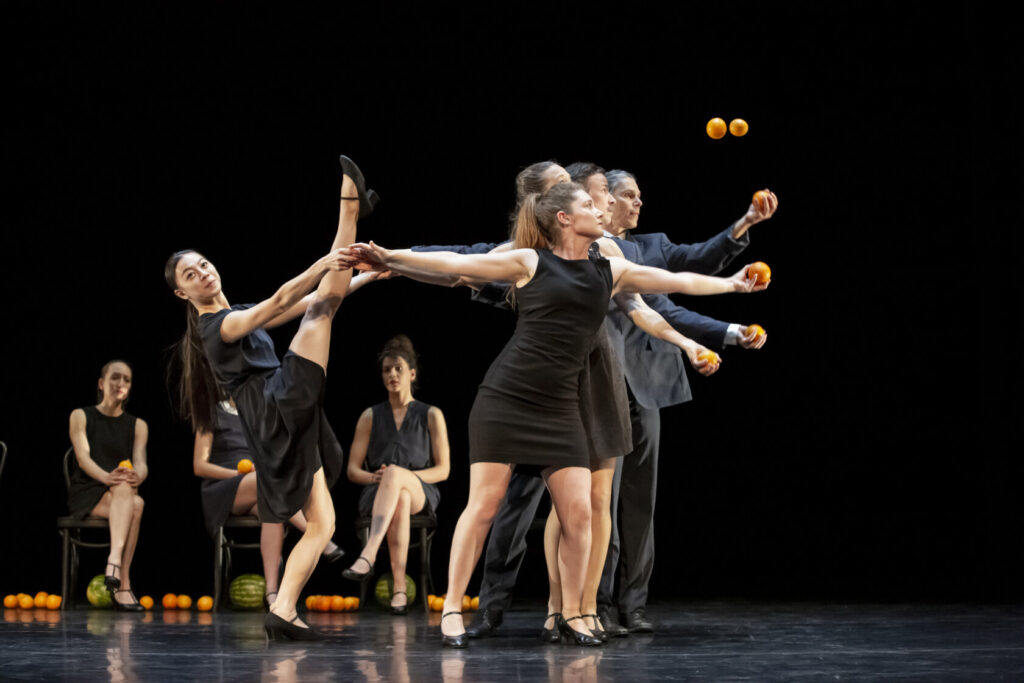
Dutch National Ballet opened the program with Hans Van Manen’s Four Schumann Pieces. The highly technical, lyrical dance required great precision and clean lines. Jacopo Tissi as the central male was commanding with sprinkles of devilish sass, and Olga Smirnova effortlessly garnered the limelight with her endless extensions, impeccable executions and seductive facial expressions. An elaborate turn linked four dancers spinning together on an axis with two men at the center and two outer women sitting on the men’s hips. In another phrase, a woman supported Tissi as he held a perfect first arabesque en relevé. There was also a male pas de deux. The Royal Ballet premiered this work in 1975, when Van Manen’s same-sex partnering was considered unconventional and progressive. In 2024, however, such ideas are culturally commonplace and without anything else in the choreography that is particularly exciting, the piece feels dated.
Trenary’s State of Darkness received a well-deserved standing ovation. Every second of the 35 minutes requires Olympic stamina. The dancer must be ferociously focused. Under harsh spotlights in black leggings and a flesh colored, midriff-baring top, there was nothing Trenary could hide or fake in her metamorphic journey. The initial moments of darkness, of stillness and trembling, gradually gave way to exploration of the space around her with careful gesture, shape, direction and increasing momentum, ultimately transforming her into a boundless force of nature.
During the pandemic, the Joyce Theater produced a revival of this iconic work and live streamed it as part of a larger program. It was danced by a different dancer each night, with Mearns and Trenary among the cohort of soloists. Given the social distancing constraints, this seemed like a practical programming choice, and a creative one, considering that the topics of isolation, vulnerability, and an inner journey were front of mind for many.
Mearns bowed out this time due to injury. I had caught her performance with New York City Ballet in Tschaikovsky Piano Concerto No. 2 a week prior, during a matinee in which she visibly struggled with a calf problem. Another ballerina stepped in to take over some of her variations, though not all. Injury notwithstanding, Mearns did appear in This Bitter Earth on that same day, in the evening performance.
A week later, in FFD Program 5, she performed Bitter Earth again, a previously unannounced ‘bonus’ work that was presumably less taxing for her than State of Darkness would have been. Tyler Angle was a steadfast partner, but the pas de deux was all about Mearns, who was softly melancholic under the Max Richter/ Clyde Otis score, overlaid with Dinah Washington’s haunting vocals: “This bitter earth, well, what a fruit it bears. What good is love, that no one shares.” In muted earthy browns, the pair moved smoothly together yet very much apart, with distant gazes and minimal eye contact. When they did merge, it was partial and fleeting – a hand here, a press there. But Dinah Washington’s voice is the most moving component of this piece, as the choreography didn’t really take us anywhere beyond pleasing aesthetics. This Christopher Wheeldon pas is from a longer work – Five Movements, Three Repeats – which is rarely staged anymore in its entirety.
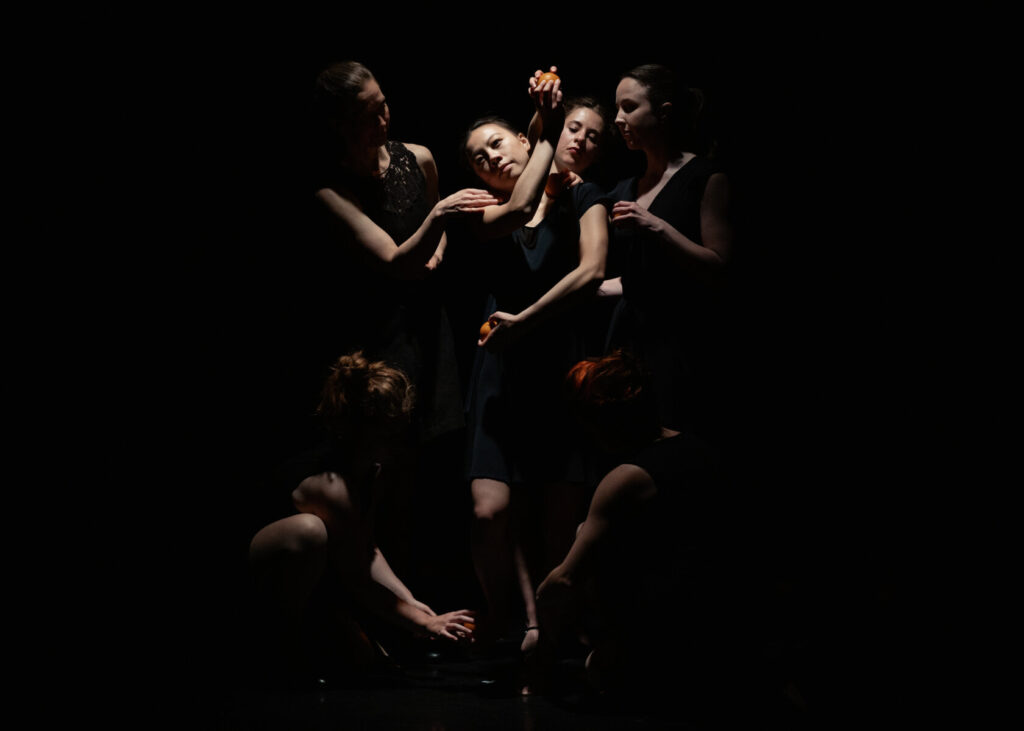
The program wrapped on a lighter note, with excerpts from Gandini Juggling’s Smashed 2– inspired by Pina Bausch’s thematic concerns with human complexity and absurdity. The juicy, messy juggling parade of oranges and watermelons, paired with the brilliant wit of the ensemble provided some comic relief as seven women flipped the script on two chauvinistic men to the point that we almost felt sorry for the cads. But this act felt wildly out of place for a dance festival, despite its Bausch inspiration.
This program offered a diverse sampling of genres, but other than State of Darkness, the selections felt stale or incongruous.
